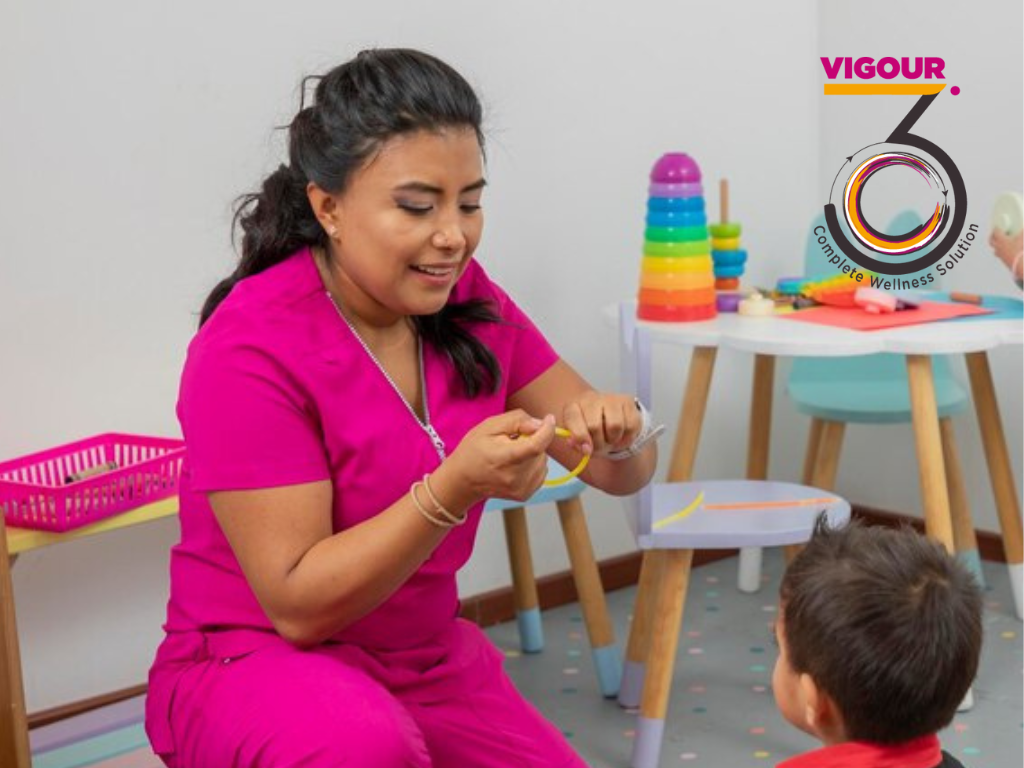
As National Education Policy has highlighted the importance of early childhood care and education, formative years are so critical than ever. These initial years of a child's life play a pivotal role in shaping their cognitive, emotional, and social development. In this blog, we will explore why early childhood care is so important, the crucial role schools play in providing quality ECCE, and the significance of regular school health check-ups in optimizing a child's growth and potential.
During the first few years of life, a child's brain experiences rapid development. Quality care and stimulating experiences in early childhood promote healthy neural connections, enhancing learning capacity in the future.
ECCE provides a nurturing environment where children learn to express emotions, build relationships, and develop social skills. These early interactions form the foundation for healthy emotional intelligence and positive relationships later in life.
Early childhood is the ideal time for language acquisition. Exposure to language-rich environments fosters strong communication skills, essential for academic success and effective interpersonal interactions.
A child's attitude towards learning is significantly influenced during their early years. Engaging and supportive ECCE programs instil a love for learning and curiosity that can last a lifetime.
Regular school health check-ups play a crucial role in providing essential care for kids, as they prevent potential health issues from hindering a child's growth and development during this critical period. Let’s understand in detail.
Schools play a crucial role in providing a safe and nurturing environment for young learners. A positive and caring atmosphere fosters a sense of security, enabling children to explore and learn with confidence.
Schools offering ECCE should have well-structured and developmentally appropriate education programs. These programs should focus on holistic development, encompassing cognitive, emotional, physical, and social aspects. A robust school health program can promote preventive over curative approaches and help to build a thriving school community.
Competent and compassionate educators are the backbone of ECCE. Teachers trained in early childhood development understand the unique needs of young learners and can provide personalized attention.
Play is an integral part of early childhood development. Schools should integrate play-based learning into their curriculum, as it promotes creativity, problem-solving, and social skills in a fun and engaging manner.
Regular school health check-ups are an essential component of ECCE, as they contribute significantly to a child's overall well-being and academic performance.
Health check-ups help identify any potential health concerns at an early stage. Early intervention can prevent the escalation of health problems and ensure timely treatment.
Through health check-ups, children learn about the importance of maintaining good hygiene and healthy habits, such as handwashing, proper nutrition, and dental care.
When children are healthy and free from health-related discomforts, they can concentrate better in the classroom and fully participate in educational activities.
School health check-ups facilitate parental involvement in monitoring and improving their child's health. Parents can work in tandem with schools to address any health issues proactively.
Early childhood care and education lay the foundation for a child's future. Schools play a vital role in providing quality ECCE, shaping young minds, and preparing them for a successful academic journey ahead. Regular school health check-ups are an essential component of this process, as they ensure a child's overall well-being and optimal learning potential. Vigour360 School Health Program facilitate preventive screening with world-class healthcare. By investing in early childhood care and education, we can create a brighter future for our children. Connect now.
Comments (3)
Test uers
s Tjhis sisbans sansas asjabs ashnajs
Hunter Houston
s dutwajwuhfai
Hunter Houston
s dutwajwuhfai